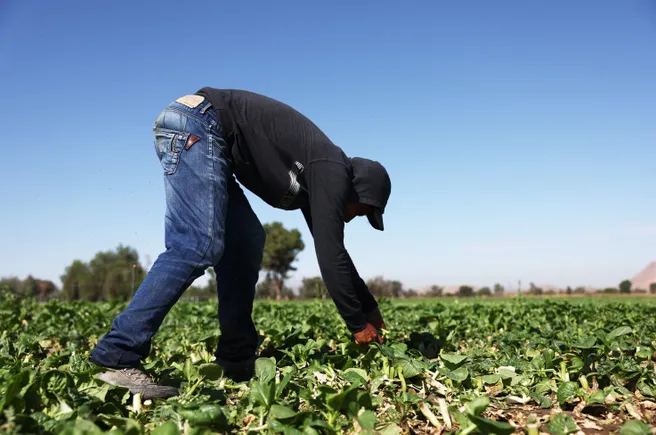Dive Brief:
- The U.S. Department of Agriculture on Friday said it awarded $50 million for farms to attract temporary workers under the H-2A visa program, part of a pilot program to expand legal migratory pathways in Guatemala and other Northern Central American countries.
- Grants as high as $1.7 million went to 141 businesses across 40 states and Puerto Rico. The funding will assist 177 unique agricultural operations and over 11,000 workers, the USDA said.
- The grants are meant to help farms address labor shortages while improving working standards and expanding regular migration pathways for workers in Northern Triangle countries including Guatemala, Honduras and El Salvador.
Dive Insight:
As the U.S. grapples with a significant farmworker shortage, agricultural businesses often rely on the H-2A visa program to secure temporary, seasonal workers and fill labor shortfalls. However, the program is both expensive for farms and rife with abuse and exploitation.
The USDA effort, known as the Farm Labor Stabilization and Protection Pilot Program, is a small step toward bolstering labor standards in the farm industry while also addressing the mounting costs of the seasonal worker program. Farms are eligible for funding if they commit to fulfilling all baseline requirements of the H-2A visa program and pledge additional worker benefits and protections.
“These awards will largely support small and mid-sized farms to ensure they can hire and retain the workers they need to be competitive in the market,” Agriculture Secretary Tom Vilsack said in a statement. ”Improving working conditions and quality of life for farmworkers, both U.S. based workers and those that come to our country to work, is one key step in building a stronger, more resilient food supply chain.”
Farms who received grants pledged to use the money to improve housing, create bonus programs and launch internal channels to resolve labor conflicts. Around 60% of grantees committed to recruiting workers from Northern Central America, where hundreds of thousands of people flee each year to escape poverty and violence.
The USDA pilot delivers on a voluntary commitment between North and South American countries to establish regular migration pathways in the Northern Triangle. Some farmworker justice groups have pushed back against the pilot effort, with the Agricultural Justice Project saying the program pays “employers for complying with the law instead of punishing them for violating it.”



